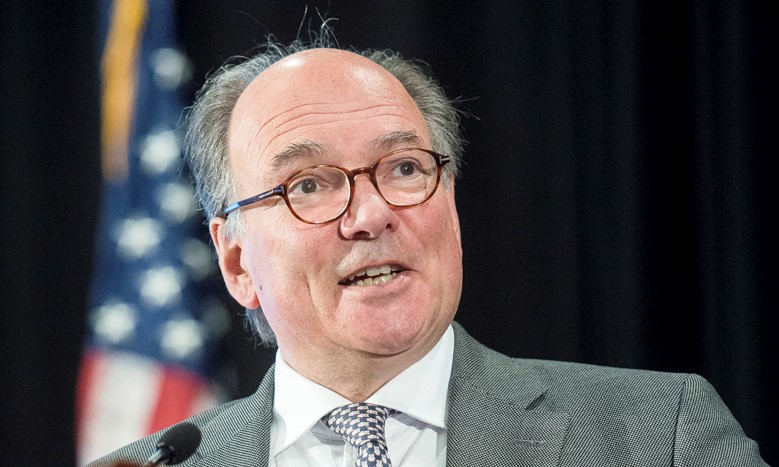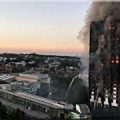‘To make buildings safe!’ is the obvious answer, but …

Why is Michael Wade, the insurance businessman and former Conservative Party treasurer advising government, rushing his proposal to dump long-term loans on cladding leaseholders, which will be part of the Budget on March 3?
One consequence will be that liability will be established before the really damaging details of the Grenfell Inquiry emerge later in the year concerning government and industry failings.
LKP’s alternative proposal is demanding levies from those responsible for the cladding disaster – housebuilders, cladding manufacturers etc, who rigged the build safety system to their advantage.
It is quite possible that the inquiry will result in corporate manslaughter charges, and the revelations to date of firms such as Kinspan rigging safety tests AFTER the Grenfell tragedy are shocking.
So the LKP argument for levies from housebuilders and cladding manufacturers may be much stronger by autumn than it is now.
All leaseholders want their buildings to be safe, but cladding remediation is not moving that fast.
Here is an MHCLG data release acknowledging that 58% of private blocks have not had their ACM (Grenfell) cladding removed 3 1/2 years after Grenfell fire.
 Loading…
Loading…
So what is to be gained by establishing near limitless liability by leaseholders?
Earlier this week the government declared – in the Daily Mail – that it was going to levy £2 billion off the housebuilders – which is certainly owing to push-back on the Wade loans proposal. But it is not enough.
Who gains if we now establish that all – or the vast majority of the cost – is dumped on leaseholders now. Quickly.
Cladding remediation is going to take years.
One could also ask what are the consequences for the housing market generally by indenturing leaseholders to ill-considered, decades long loans.
Cabinet tussle over £10bn pot for cladding victims
Chancellor pressed for rescue package for families hit by building safety scandal Asked for a multi-billion-pound deal to repair homes with dangerous cladding Sources told of ‘intensive efforts’ to persuade Treasury to add a substantial sum to the ‘developers levy’ Pressure is mounting on the Chancellor to sanction a £10billion rescue package for families hit by the building safety scandal.
Ministers consider £2bn levy on developers after Grenfell disaster
Big building firms face multi-billion-pound levy to help families pay to repair homes with dangerous cladding The levy could raise up to £200million a year – a total of £2billion over ten years It could mean a levy on all high rise flats and separate charge on major builds Big building firms face a multi-billion-pound levy to help families pay to repair homes with dangerous cladding in the wake of the Grenfell fire.
The ‘cladding tax’ could end up being a disastrous mistake | The Spectator
Since the first buildings with dangerous cladding were discovered in the aftermath of the Grenfell Tower fire, one question has hung continuously over all efforts to make them safe: who is going to pay? Now, after three and a half years of stilted progress, the government appears to be on the verge…





 LKP trustees tell MHCLG that Martin Boyd can return to LKP any time
LKP trustees tell MHCLG that Martin Boyd can return to LKP any time






















“One could also ask what are the consequences for the housing market generally by indenturing leaseholders to ill-considered, decades long loans.”
£Billions wiped off the flats market, great personal cost for leaseholders, flats sold at a huge discount – Beneficiaries ? Investors, freeholders who acquire or buy these properties, resell after remediation or rent out.
The Conservatives slogan of being a property owning democracy would not reflect the reality, and consolidate the position of those who already have assets.
By “agreeing” to a loan leaseholders would legally be accepting responsibility for the rectification of the cladding issues.
“Who gains if we now establish that all – or the vast majority of the cost – is dumped on leaseholders now. Quickly.”
One word – Freeholders.
I hope that I am wrong, but after 31/2 years of crippling costs for interim measures, EWS1 effectively preventing leaseholders from selling, Covid-19 economic impact on jobs yet to be seen and now the prospect of 30 year loans for remediation (issued to freeholders and re-charged to leaseholders at £cost +++%) one might be forgiven for thinking that this could have the hallmarks of a wholesale ‘property grab’.
A potential ready-made market for either ‘remediate & re-profit’ or institutional investors looking for a leg-up onto the ‘Build-To-Rent’ model?
I hope that I am wrong.
On 11 January 2021, Robert Jenrick, the Secretary of State, said leasehold reform would be tackled through two pieces of legislation.
A Bill in the forthcoming session will “set future ground rents to zero”. This will also apply to retirement properties, but commencement in respect of retirement properties will be delayed for a period.
Future legislation will:
Reform the process of enfranchisement valuation used to calculate the cost of extending a lease or buying the freehold.
Abolish marriage value.
Cap the treatment of ground rents at 0.1% of the freehold value and prescribe rates for the calculations at market value. An online calculator will simplify and standardise the process of enfranchisement.
Keep existing discounts for improvements made by leaseholders and security of tenure.
Introduce a separate valuation method for low-value properties.
Give leaseholders of flats and houses the same right to extend their lease agreements “as often as they wish, at zero ground rent, for a term of 990 years”.
On the timing of future legislation, Lord Greenhalgh, the Minister responsible for leasehold, responded to questions on 5 January 2021 and said:
We need primary legislation. I have been told by Professor Hopkins, who was in charge of the Law Commission work, that the preparations to get primary legislation ready for consideration by noble Lords will take approximately one year, so we are probably talking about the third Session.
https://commonslibrary.parliament.uk…and-and-wales/
published wednesday 20 Jan 2021.
( all above information was copied from parliament website )
Adobe “flash play” was declared “dead” by adobe software company and users are asked to uninstall before Feb 2021. The Government should copy this approach to resolve the cladding insulation problem .
Likewise, Robert Jenrick , Secretary of State can declare ” the ground rent investment companies” which are holding the freehold title of completed tower blocks with combustible cladding and unable to pay for replacement cladding “as insolvent” and he puts these companies into ” administration or bankruptcy” under Bona Vacantia .
The Government must demand the developer of the building to replace the combustible cladding at developer’s expense, may spread over a few years accounts ( just like Taylor Wimpy have set aside £130 Mil ) or else put the developer company into bankruptcy.
No messing around for past 3 years . Just Govern !
3 1/2 years since Grenfell, and now another Tory croney puts his Lord Snooty biased opinion into the melting pot.
The way this government is dilly dallying is similar to Corbyns indecision with Brexit, it is about the worst thing you can do for your electorate….it WILL be remembered.
Stop thinking of legalities and think of Fair play and Justice! bollocks to lawyers..its these people that got ordinary folk to sign up to an unjust system, they should take part of the blame…
And now we hear that there are certain people who think they should have a separate rule for them due to their ‘Breeding’…! Its ridiculous… we are the laughing stock of Europe.
why not commonhold?